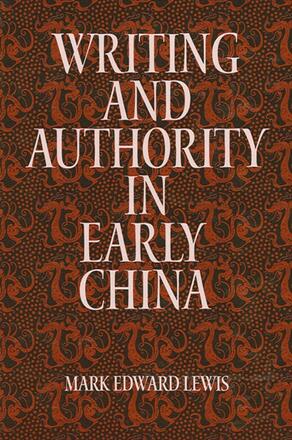
Writing and Authority in Early China
Alternative formats available from:
Traces the evolving uses of writing to command assent and authority in early China, an evolution that culminated in the establishment of a textual canon as the basis of imperial authority.
Description
This book traces the evolving uses of writing to command assent and obedience in early China, an evolution that culminated in the establishment of a textual canon as the foundation of imperial authority. Its central theme is the emergence of this body of writings as the textual double of the state, and of the text-based sage as the double of the ruler. The book examines the full range of writings employed in early China, such as divinatory records, written communications with ancestors, government documents, the collective writings of philosophical and textual traditions, speeches attributed to historical figures, chronicles, verse anthologies, commentaries, and encyclopedic compendia. Lewis shows how these writings served to administer populations, control officials, form new social groups, invent new models of authority, and create an artificial language whose mastery generated power and whose graphs became potent objects. Writing and Authority in Early China traces the enterprise of creating a parallel reality within texts that depicted the entire world. These texts provided models for the invention of a world empire, and one version ultimately became the first state canon of imperial China. This canon served to perpetuate the dream and the reality of the imperial system across the centuries.
Mark Edward Lewis is University Lecturer in Chinese Studies at the University of Cambridge. He is the author of Sanctioned Violence in Early China, also published by SUNY Press.
Reviews
"This book is a masterful study of the ideology and uses of writing in early China. The scholarship is impeccable—indeed, stunning—the interpretation of an array of difficult texts is brilliant, and the conclusions are of central importance to all subsequent studies of this period. This book, in my opinion, is the single most valuable study in the field of early China scholarship since Angus Graham's Disputers of the Tao. It is certain to be read, cited, and disputed for many decades." — Stephen W. Durrant, author of the The Cloudy Mirror
"Writing and Authority in Early China is a comprehensive presentation about the structure of society and authority in pre-imperial and early imperial China from a very important and heretofore unexplored perspective. I would not be surprised to see this book rise to a level of lasting importance that few modern works of scholarship, even good ones, can hope for." — William G. Boltz, University of Washington